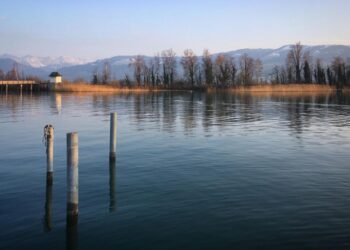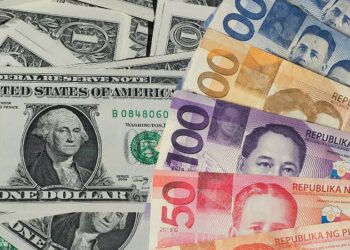The term “Third World” came into existence during the course of the Cold War. It was used to describe countries that were not aligned with either the Communist Bloc or NATO. Countries like Canada, United States, Western European Countries and South Korea were seen as the First World. Countries such as China, The Soviet Union, and Cuba were seen as the Second World. This term served as a way to broadly categorize the countries of the world into three basic groups based on economic and political division.
However with the fall of the Soviet Union and the end of the Cold War, the term Third World has been used less. These days we have terms such as developing Countries. The concept in itself has become increasingly outdated due to the fact that it no longer represents the current economic and political situation of the world. So, is Iraq a Third World Country?
Is Iraq a Third World Country?
Yes Iraq is a third world country. Back in the 60s and 70s, the country was considered as a second world country as a result of the stability and safety of the country as well as the strong economy as seen in the gross national income. It was also quite involved in a number of international committees. However, after the gulf wars, the countries soon lost its status and the term third world became synonymous with it.
Iraq has faced some rather trying times over the past few years that have seen it evolve from a country with a lot of prospects to one that is struggling to keep its unity. The state of the Iraqi people at the moment can best be likened to what you find in struggling Nations in Africa and some parts of the Middle East like Somalia and Yemen.
Overview Of Iraq
Officially known as the Republic of Iraq, Iraq is a country located in the Western Part of Asia it is bothered by Iran in the East, Turkey to the north and Saudi Arabia to the South. The Capital of Iraq is Baghdad; it also doubles as the largest city. Iraq plays host to a number of ethnic groups such as the Assyrians, Arabs, Kurds, Shabakis, Turkmen, Yazidis, Armenians and Kawliya. About 99% of the total populations of the country are Muslims. There is a minute population of Christians, Yezidis, and Mandeans. The official languages spoken include Kurdish and Arabic.
The republic of Iraq has a coastline that measures about 36 miles along the northern Persian Gulf and covers the northwestern end of the Zagros mountain range, the Mesopotamian Aluvial Plain as well as the eastern portion of the Syrian Desert.
The Evolution Of Iraq
The country we today know as Iraq was once one of the provinces of the Ottoman Empire till it was partitioned back in the 20th century. It was then composed of three provinces named vilayets. These were Baghdad Vilayet, Mosul Vilayet as well as Basra Vilayet. Back in 1920, Mesopotamia was formed under the League of Nations. However, a monarchy backed by the British joining the vilayets into one entity was formed back in 1921 under King Faisal I of Iraq. In 1932, the Hashemite kingdom got independence from the British, however, the monarchy was deposed in1958 leading to the creation of the Iraqi Republic. Iraq was under the control of the Arab Socialist Ba’ath Party between 1968 and 2003. The party was however removed from power after the invasion of the country the United States. Multi-party Parliamentary elections were conducted in 2005.
The United States and countries aligned with NATO ended their presence in Iraq Back in 2011, but this did not prevent an escalation of the fight as fighters from Syria came into the country. Currently Iraq is a federal Parliamentary republic that is made up of 19 provinces. The official religion practiced in the country is Islam.
The Economy
It is worthy of note that the economy of Iraq is largely dominated by the oil sector which gives it up to 95% of its foreign exchange earnings. The country is not entirely a world economic power and definitely has its struggles. The country also has a 30 percent unemployment rate as well as a per capita GDP that is about $4,000.
On the employment angle, the public sector is responsible for about sixty percent of the total full-time employment as at 2011. The oil industry which accounts for a large chunk of the gross national income does not really employ much people. In addition to this, only a small number of the women population has a form of employment.
Before the United States invaded Iraq the country’s economy was not favorably disposed to citizens of world nations owning Iraqi businesses. They also ensured to place high tariffs on foreign goods to discourage them. However, after the 2003 invasion of Iraq, the government began issuing a number of orders aimed at encouraging countries aligned and non-aligned to invest in the country.
The Debt And The Future
Back in 20044, the Paris Club reached an agreement to write off the debt of Iran by about 80%. This amounted to about $33 Billion of the country’s total debt to members of the club. Also, in 2011, Citigroup added the country as one of the countries it described as Global Growth Generators with possible economic growth among the developing countries.
Five years after the country was invaded by America, a total of 2.4 million people were projected to have been displaced. Also, thing such as life expectancy and healthcare took a big hit even as the country became food insecure. Also, only about a third of the children in Iraq had safe water to drink.
The contributions of foreign aid agencies have also been limited as a result of the several challenges they face during the course of executing their mandate. This thus leaves the assistance they have to offer highly limited. The situation is almost the same as what is obtainable in North Korea with a large portion of the population living below the poverty line. It is worthy of note that International NGOs have been heavily targeted especially during the course of the first five years of the conflict. About 94 aid workers were murdered with 248 of them injured and 24 of them arrested.
The Sanitation And Water Supply In Iraq
One of the notable features of countries of the third world is that they often lack in sanitation and water supply. Having experienced three decades of conflict, the country’s water supply system has been greatly damaged. The disparity in water supply is seen across class and location. For instance, people in the urban centers apparently have greater access to potable water. However, the rural areas see only about 77 percent of the population having access to safe usable water.
A Look At The Infrastructure And Health In Iraq
Iraq is still enmeshed in an embarrassing housing crisis despite the numerous infrastructural projects going on in the country. Back in 2010, Iraq’s spending on healthcare was about 7% of the total GDP of the country. It is estimated that they were 13.92 nurses and 6.96 doctors per 10,000 inhabitants. The life expectancy was projected as 68.49 years in 2010 which is reduction from the 1996 calculation.
Back in the 1970s, Iraq had come up with a much centralized free health care system that deployed a hospital based model of curative care. There was heavy dependence on imported medicine by the country which was paid using proceeds from oil sales. According to data from UNICEF, before 1990, about 97 of the population in urban settlements as well as 71 percent of rural settlements had some access to primary health care.
What Is The Education Sector Like In Iraq?
Before facing economic sanctions from the United Nations and countries allied, Iraq had a rather successful Arabic system of education. It is believed by a section of people that the sanctions imposed had a heavy effect on the educational system due to its effect on the children. With the new millennium, a number of countries including Iraq sought to plug into the millennium development goals which were primarily aimed at helping developing countries. Iraq adopted a goal to make education acceptable for both girls and boys especially at the primary level of education.
There has been some significant improvement in the education sector of Iraq since the implementation of the MDGs. There has been increase in enrollment rates since then.
Final Word
Iraq certainly is a shadow of its former self. It was once one of the enviable countries in the Middle East due to a number of reasons. The invasion by the Americans definitely played a huge role in reversing its fortunes. However, it may not be a world economic power, but as the conflicts de-escalate, Iraq looks like it could spring a surprise to the world.
You May Like These Articles As Well:
How Much Does The Cast Of Gold Rush Make?
How To Transfer Money From Chase To Wells Fargo







